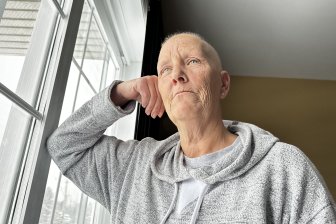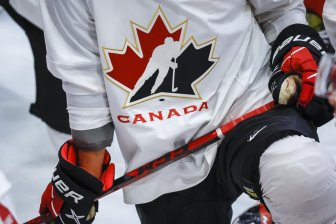Reese Witherspoon unwittingly set off an avalanche of online discourse after posting a video of herself making sweet treats out of freshly fallen snow, igniting a debate about whether snow is safe to eat.
The Legally Blonde actor shared a TikTok in which her and her family scooped snow into two large mugs before adding chocolate syrup, salted caramel syrup and a splash of cold-brew coffee to make what she dubbed “Chococinnos.”
“It’s so good,” she proclaimed after taking a bite.
But many of Witherspoon’s viewers were dubious about the recipe, particularly regarding her use of fresh snow, sparking a flurry of comments.
“No no no.. snow is not made to eat.. u can get seriously sick,” one person wrote.
“Can you put snow in a clear cup and let it melt? I just want to see if it’s safe to eat first,” another asked.
Some viewers came to her defence, however, including one person who wrote: “Fallen snow can be very dirty from the air and wind but who cares. You only live once. I remember eating snow as a kid.”
Many commenters who identified themselves as Canadian also shared that they had eaten snow with no problems.
After fielding dozens of comments questioning the safety of eating snow, Witherspoon made a follow-up video to defend herself.
Get the latest National news.
Sent to your email, every day.
“There’s so many people on here saying that snow is dirty, so we went and took snow from the backyard and we microwaved it and it’s clear! Is this bad? Am I not supposed to eat snow?”
In a two more follow-up videos, Witherspoon added that she was in the “you only live once” camp when it comes to eating fresh powder and noted that not all the water she drank growing up was filtered.
“We drank out of the tap water. We actually put our mouths on the tap and then sometimes like in the summer, when it was hot, we drank out of the hose, like, we put our mouth on the hose, growing up,” Witherspoon recounted. “Maybe that’s why I’m like this.”
Snow, like rainwater, can pick up contaminants and pollutants in the air as it falls to Earth. According the Centers for Disease Control and Prevention, precipitation “can carry bacteria, parasites, viruses, and chemicals that could make you sick.”
Then why do generations of Canadians continue to enjoy recipes like snow ice cream and maple taffy, which both utilize freshly fallen snow?

Most people have a good immune system and don’t eat enough snow to make them sick, Dr. Jennifer Johnson from the Mayo Clinic told Accuweather.
“For most people, eating a small amount of fresh snow (a bite or two), or catching snowflakes on their tongue, is unlikely to cause serious problems. People who have significant health conditions and very young infants should be more cautious,” she added.
The level and types of contaminants that appear in snow also vary depending one’s region, and whether the environment is rural or urban.
John Pomeroy, a water resources and climate change scientist at the University of Saskatchewan, told NPR that its best to wait a few hours into a snowfall before gathering snow to eat. That’s because the shape of a snowflakes acts as a sort of net that catches airborne pollutants.
The longer snow falls, the more pollution is filtered out of the air by the snowflakes. After a few hours, the newly fallen snow should have fewer contaminants.
“It is well-known amongst snow chemists that fresh Arctic snow goes very well with 15-year-old single malt whisky,” he added.
© 2024 Global News, a division of Corus Entertainment Inc.




